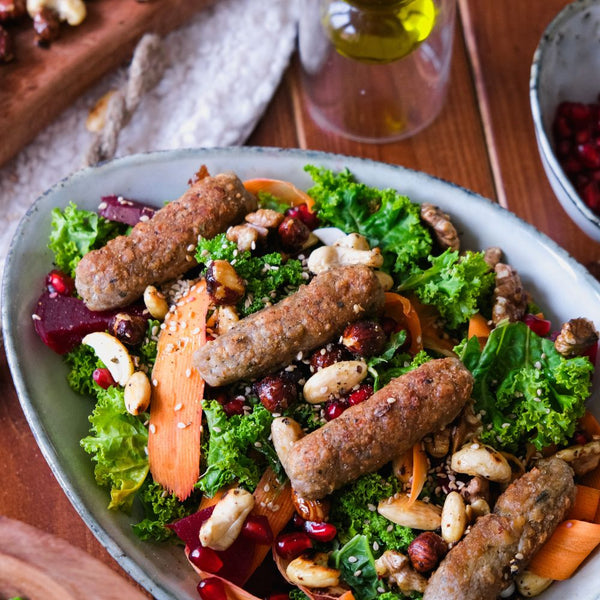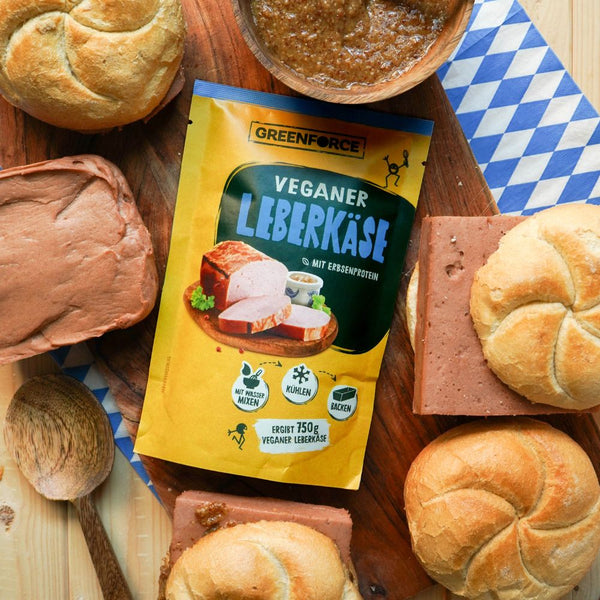#PlasticFreeJuly is a global movement in which everyone should try to avoid plastic as much as possible. On this occasion, we would like to give you tips on how to make things easier for you in your kitchen. Only if we all do something together to protect the environment can we make a difference. Everyone does what is possible. Even small things can make a big difference! 🌎
Jute bags instead of plastic bags
Yes, we know this isn't exactly a tip you've never heard of. But it is still a very important tip. It can be as simple as swapping plastic bags for jute bags or other shopping bags. When you leave the house to go shopping, remember to take your jute bag with you. You can easily transport your fruit and vegetables in it. Jute bags are also very suitable for storing glass waste and then taking it to the waste glass container.
Just try putting a small jute bag in every bag or jacket pocket. So you can't forget him either.
Buy unpackaged fruit & vegetables
It's often not so easy to walk out of the supermarket completely without plastic packaging. Almost every fruit and vegetable is packaged again. But pay attention to this the next time you shop. There are always fruits and vegetables that are not packaged. Simply transport your things in the jute bag you brought with you.
Unfortunately, organic food is often wrapped in plastic to distinguish itself from other products - that's the obvious thing to do in our plastic-flooded world. We hope that there will soon be a solution for this and that organic products can soon be highlighted differently.


Organic waste bags made from old newspaper
Many households buy organic plastic bags for their organic waste. What many people don't know is that these bags are also very difficult to decompose in the organic waste bin. They are labeled as compostable, but only if you throw them into the compost heap in your own garden. They lack the oxygen to decompose in the garbage can or the fermentation plants. They are also very expensive to purchase. Our tip: make organic waste bags out of old newspaper. It's simple, sustainable and even cheap. But please don't use coated magazines for this - they have no place in organic waste.
Drink tap water
Why buy unnecessary plastic bottles of water when we are blessed with good tap water here? Not only is it unnecessary hassle that you take on by purchasing it, but it is also not sustainable. If you prefer to drink filtered water, you can buy a filter machine for little money.
And if you do buy purchased drinks, then it's best to use PET bottles. These can be reused up to 20 times. Although glass can be used more often (up to 50 times), it is also heavier and therefore causes more emissions during transport.
Sustainable cleanliness in the kitchen
Conventional cleaning products are not only harmful to you, but also to the environment. It is therefore better to avoid chemical cleaning products altogether and rely on tried and tested home remedies: citric acid, soda and vinegar. One of the best ways to remove grease and stubborn stains.
Some companies now also offer glass bottles and tabs. To do this, you can simply put the tab in the glass bottle, fill it with water and start cleaning straight away. Once the bottle is empty, you only need to buy another tab. This is practical, environmentally friendly and efficient.
Pay attention to the diet
Animal products are among the most environmentally damaging factors in your kitchen. If you are not yet fully vegan, you should try to reduce your meat consumption. Try to have a few vegan days. Meat and milk production plays a significant role in global warming. Livestock farming is responsible for 51% of total global greenhouse gas emissions. On average, around 628 liters of water (7.5 full bathtubs) are needed to produce 1 liter of milk.
Do you love meat? Then try ourEasy To Mix products . They are just as suitable for vegans as they are for flexitarians, meat lovers or vegetarians. Our products are intended to be a good alternative, especially for meat lovers, to reduce meat consumption but still don't want to miss out on the enjoyment. Even with a clear conscience.


Reduce food waste through proper storage
Every year around 12 million tons of food end up in the trash in Germany. Per capita, we throw away around 75 kilograms of food per year. In total, that's food worth around 20 billion euros every year.
One of the most important measures to combat food waste is proper storage. If some foods are stored incorrectly, they go bad more quickly and we have to throw them away. For example, did you know that tomatoes shouldn't be stored in the refrigerator? They lose their aroma more quickly and can start to mold more quickly. Or bread is usually stored incorrectly: Bread needs air so that it doesn't mold so quickly. Clay containers are ideal for storing bread. Bread bins, on the other hand, are also not recommended as they dry out more quickly. You can find more storage tips here .
We at GREENFORCE also want to reduce food waste. That's why our products come in powder form. They have a very long shelf life and the packs can be resealed. This means you can always prepare the right amount that you need.
We hope that there was one or two helpful tips for you. We all have to do something to save our planet.
And if it's just one more time of shopping with a jute bag.
Step by step we can do it together! 💚

















